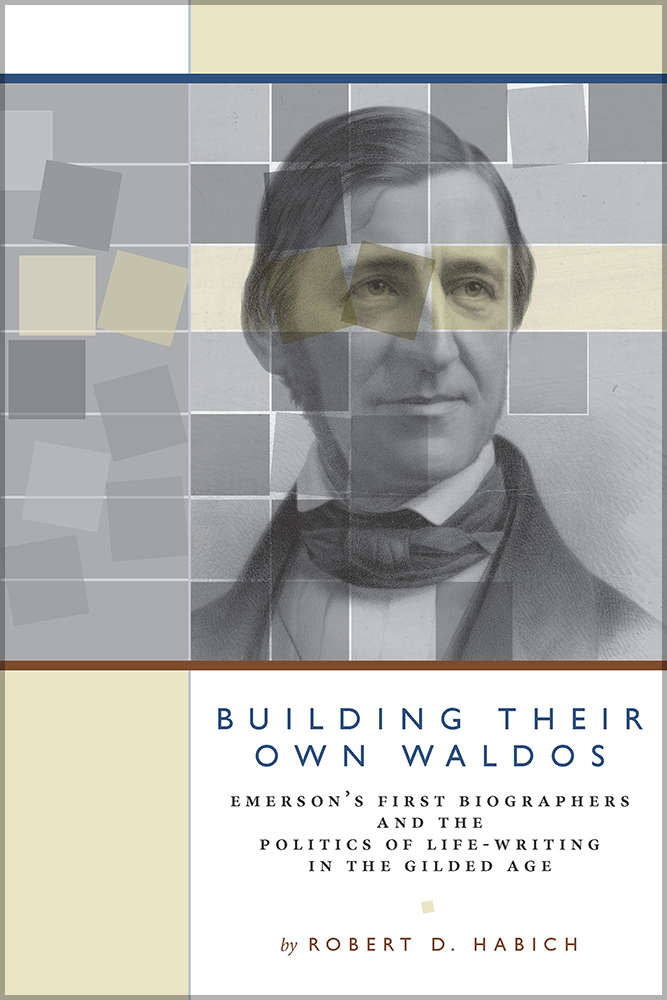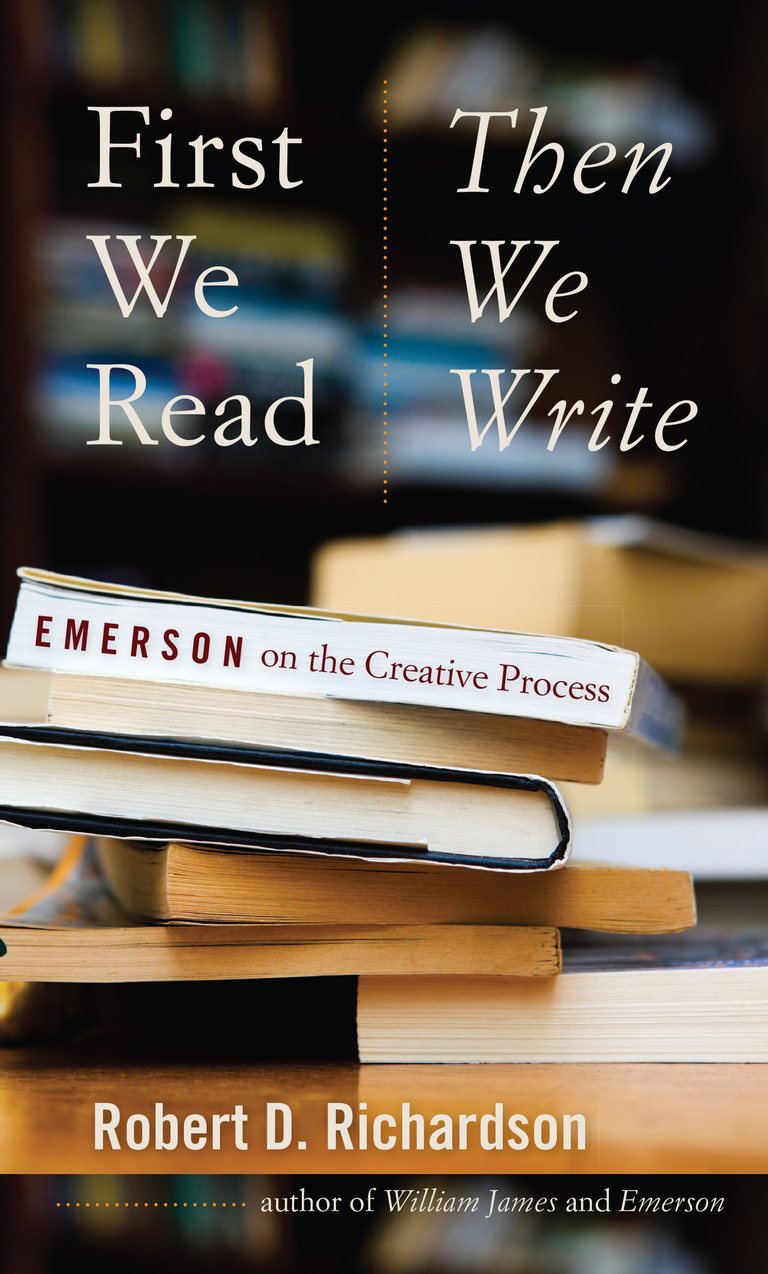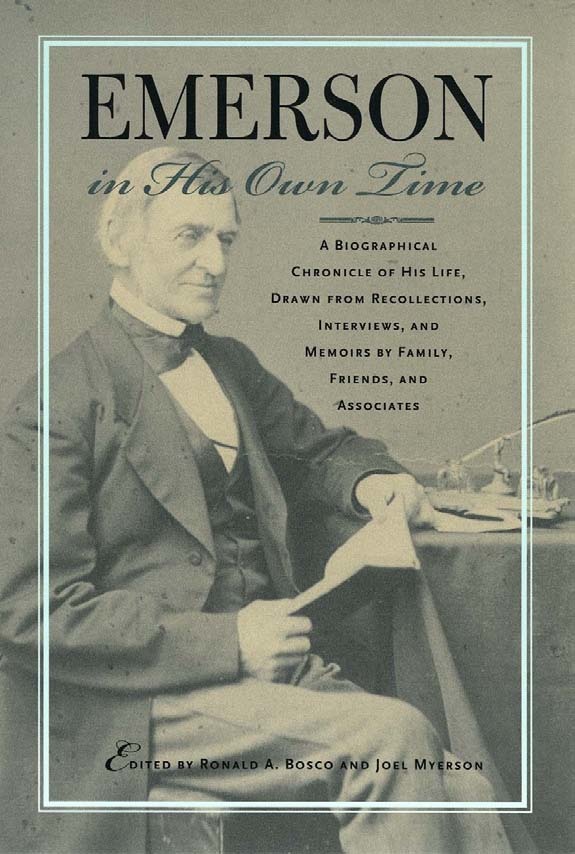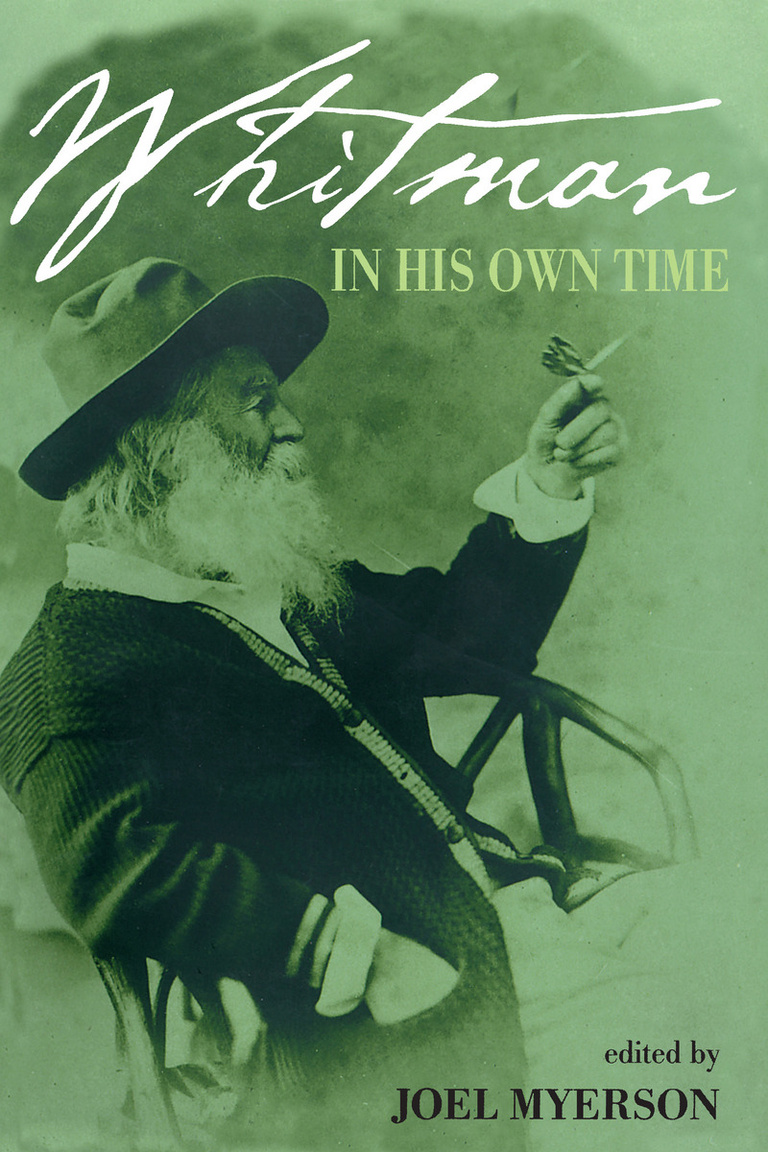Drawing on never-before-published letters, diaries, drafts, business records, and private documents, Habich explores the making of a cultural hero through the stories of Emerson’s first biographers— George Willis Cooke, a minister most recently from Indianapolis who considered himself a disciple; the English reformer and newspaper mogul Alexander Ireland, a friend for half a century; Moncure D. Conway, a Southern abolitionist then residing in London, who called Emerson his “spiritual father and intellectual teacher”; the poet and medical professor Oliver Wendell Holmes, with Emerson a member of Boston’s gathering of literary elite, the Saturday Club; James Elliot Cabot, the family’s authorized biographer, an architect and amateur philosopher with unlimited access to Emerson’s unpublished papers; and Emerson’s son Edward, a physician and painter whose father had passed over him as literary executor in favor of Cabot.
Just as their biographies reveal a complex, socially engaged Emerson, so too do the biographers’ own stories illustrate the real-world perils, challenges, and motives of life-writing in the late nineteenth century, when biographers were routinely vilified as ghoulish and disreputable and biography as a genre underwent a profound redefinition. Building Their Own Waldos is at once a revealing look at Emerson’s constructed reputation, a case study in the rewards and dangers of Victorian life-writing, and the story of six authors struggling amidst personal misfortunes and shifting expectations to capture the elusive character of America’s “representative man,” as they knew him and as they needed him to be.
“Building Their Own Waldos is American literary scholarship at its finest. Working mostly from a large range of previously untapped sources, Bob Habich tells the story of the first six biographies of Ralph Waldo Emerson. Almost everything about this story is new and all of it is fascinating; Habich writes extremely well, and he has fresh things to say about Emerson, about the state of biographical art in the 1880s, and about the growth of the American cult of celebrity. This is an important, appealing book. I read it straight through one afternoon, skipping supper without noticing or minding.”—Robert D. Richardson, author, First We Read, Then We Write: Emerson on the Creative Process and Emerson: The Mind on Fire
“Through remarkable archival research, Robert Habich has demonstrated the ways Emerson’s six early biographers each possessed a distinct relationship with Emerson and his family. Each of them wrote his biography from a different perspective not just on Emerson but also on life-writing itself, but all of them responded in some form to the overriding issue for biographers (especially literary biographers) in the 1880s: the relationship between the ‘inner’ man and the ‘private’ man, or put another way, the problem of how much of a subject’s domestic privacies to reveal in the service or the name of conveying the subject’s character.”—Scott E. Casper, author, Constructing American Lives: Biography and Culture in Nineteenth-Century America
“Combined with his impressive scholarship, Robert Habich’s attention to the human elements and material conditions that shaped these biographies gives this study a rare combination of vivacity and authority. His extensive archival work is stunning. Given the wealth of new information he has uncovered and the relative obscurity of most of Emerson’s early biographers, Habich might have been excused if he had simply amassed facts about their lives and the background, writing, and publication of their works. Instead, like a skilled biographer, he displays a keen eye for the telling fact and a sure control of narrative structure and pace.”—Linck Johnson, coeditor, The Bedford Anthology of American Literature, volume 1, Beginnings to 1865



